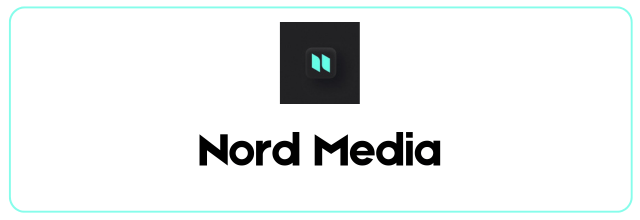- The Oxymind
- Posts
- Breaking the Overthinking Loop
Breaking the Overthinking Loop
How I Stopped My Mind from Hijacking My Peace
In Partnership With
In the mail today
Stop Overthinking
Recipe of the week
Brain Game
Productivity Hack: The Focus Sprint
Hey beautiful humans! Last week, I shared how changing my self-talk transformed my anxiety. But here's what I didn't tell you—even with a kinder inner voice, my mind was still running a 24/7 marathon of "what ifs" and worst-case scenarios. Today, I'm pulling back the curtain on my messiest mental habit and how I finally broke free.
It Started at 2:47 AM on a Tuesday
Picture this: I'm lying in bed, eyes wide open, replaying a conversation from three days ago. My brain is convinced that when my boss said "interesting choice" about my presentation approach, she actually meant I was incompetent and probably getting fired.
Sound familiar?
That night, I realized something terrifying—I had become a prisoner in my own mind. While I'd learned to speak to myself more kindly, I was still trapped in endless loops of analysis, prediction, and mental gymnastics that left me exhausted before my day even began.
The worst part? I thought this was just "being thorough" or "being prepared." I had no idea I was slowly suffocating my own peace of mind.
The Day I Discovered I Was Addicted to Overthinking

Here's the uncomfortable truth I had to face: I was addicted to overthinking because it gave me the illusion of control. If I could just think through every possible scenario, predict every outcome, and rehearse every conversation, then nothing bad could happen to me.
Except that's not how life works.
Dr. Susan Nolen-Hoeksema's research on rumination showed me that people who overthink are 70% more likely to develop depression and anxiety disorders. I wasn't protecting myself—I was slowly poisoning my mental health with my own thoughts.
The breaking point came when my partner said, "You know you've asked me the same question five different ways in the last ten minutes, right?" I realized my overthinking wasn't just torturing me—it was affecting the people I loved.
Why Our Brains Are Wired to Overthink (And Why It's Not Your Fault)
Before I beat myself up for being an overthinker, I learned something that changed everything: our brains are literally designed to overthink as a survival mechanism.
Our ancestors who constantly scanned for threats and planned for dangers were the ones who survived. The problem? Our modern brains can't tell the difference between a saber-toothed tiger and an awkward text message from our friend.
Neuroscientist Dr. Rick Hanson calls this the "negativity bias"—our brains are like Velcro for negative experiences and Teflon for positive ones. We're evolutionarily programmed to overthink because our survival once depended on it.
This revelation was both devastating and liberating. Devastating because I realized how much mental energy I'd wasted. Liberating because I understood it wasn't a character flaw—it was biology gone haywire in the modern world.
The Hidden Cost of Overthinking That Nobody Talks About

Everyone talks about how overthinking causes anxiety and stress. But here's what I discovered that shocked me: overthinking was stealing my ability to be present for the good moments in my life.
I remember sitting at my nephew's birthday party, watching him blow out candles, but my mind was spiraling about a work deadline three days away. I missed his face light up. I missed his giggle. I missed a moment I'll never get back—all because my brain was time-traveling to problems that hadn't even happened yet.
That's when I realized overthinking isn't just about managing anxiety—it's about reclaiming your life from a mind that's always somewhere else.
After months of research and trial-and-error, I developed this method that gave me my peace back:
S - Spot the Loop
I learned to recognize overthinking versus problem-solving using the "2-Minute Rule": If I've been thinking about the same thing for more than 2 minutes without reaching a conclusion, I'm overthinking.
Physical signs that helped:
Tight shoulders and jaw
Shallow breathing
That familiar stomach knot
Same thoughts cycling with slight variations
T - Time-Box the Worry
Instead of stopping overthinking completely (never worked), I gave myself 10 minutes to worry. Set a timer, let my brain go wild. When it rang: take action or let it go.
This "worry scheduling" honored my brain's need to process while setting boundaries.
O - Outside Perspective Check
I asked: "What would I tell my best friend with this exact worry?"
Nine times out of ten, my advice to someone else was completely different from how I treated myself. This became my escape hatch from overthinking prison.
P - Present Moment Anchor
I used the "5-4-3-2-1 technique":
5 things I can see
4 things I can touch
3 things I can hear
2 things I can smell
1 thing I can taste
This neurological reset button pulls your brain from the future back to reality.
The "Thought Defusion" Technique That Changed Everything
The most powerful tool I discovered came from Acceptance and Commitment Therapy (ACT). Instead of fighting my overthinking thoughts, I learned to observe them with curiosity.
When my brain said, "What if this presentation goes terribly and everyone thinks I'm incompetent?" I started responding with: "I'm having the thought that this presentation might go terribly."
That simple phrase created psychological distance between me and my thoughts. I wasn't trying to stop the thoughts or convince myself they were wrong—I was just noticing them as mental events, not facts.
Dr. Steven Hayes, who developed ACT, calls this "thought defusion." Instead of being fused with our thoughts (believing they're true), we learn to see them as just thoughts—mental static that doesn't require our belief or attention.
The Unexpected Benefits of Recovering from Overthinking
Breaking free from chronic overthinking didn't just reduce my anxiety—it unleashed parts of myself I'd forgotten existed:
My creativity came back: When my mind wasn't constantly occupied with worry, it had space for imagination and innovation. I started having ideas again.
My relationships deepened: I became present in conversations instead of mentally rehearsing what to say next or analyzing what people "really meant."
My decision-making improved: Paradoxically, thinking less helped me make better choices. I started trusting my intuition instead of analyzing every option to death.
My sleep transformed: Those 3 AM worry sessions became rare instead of nightly. My brain finally learned it was safe to rest.
The most surprising change? I became more confident. All that mental energy I'd been using for catastrophic thinking was now available for actually living my life.
A Personal Note About the Journey
I won't sugarcoat this: breaking free from chronic overthinking isn't a straight line. There are days when my brain still tries to drag me into worry spirals about things that haven't happened and probably never will.
The difference is now I recognize what's happening faster, and I have tools that actually work. More importantly, I've learned that peace of mind isn't about having a perfectly quiet brain—it's about not letting your thoughts bully you into living in imaginary futures or unchangeable pasts.
Your overthinking served a purpose once. It tried to protect you by preparing for every possible threat. Thank it for trying to keep you safe, then gently show it that you're ready to live in the present moment instead.
The Question That Started My Recovery
I'll leave you with the question that changed everything for me:
"What would my life look like if I spent as much time being present as I do worrying about the future?"
The answer to that question is why I do this work—and why I believe your peace is worth fighting for.
Your mind doesn't have to be your prison. It can be your playground instead.
Recipe of The Week:15-Minute Stress-Busting Buddha Bowl

Why this works: The omega-3s in tahini and magnesium in spinach literally calm your nervous system. Plus, the simple assembly requires just enough focus to pull you out of mental loops without overwhelming your brain.
Pro tip: Make extra sauce—it keeps for a week and turns any random vegetables into a meal.
Brain Game
You're locked in an intense ping-pong showdown with your friend at home. The score is tied at 19 after you smash a clean winner — but then disaster strikes. The ball rolls straight into that annoying floor pipe in the basement — the one that goes nowhere.
Now it's stuck about a foot down, just snug enough that nothing fits beside it. You’ve got no fancy tools, just your ping-pong paddles, a pair of shoelaces, and a plastic water bottle that’s too wide to go into the pipe.
How do you get the ball out safely and undamaged using only what you have?
Inspiration: Brainden
**For answer, scroll to the bottom of the post
Productivity Hack: The Focus Sprint
When your brain feels like a browser with 47 tabs open.
The Overthinking Pomodoro Technique:
Minutes 1-5: Brain Dump
Write down EVERYTHING swirling in your head
No organization, just dump it all out
Minutes 6-25: Single-Task Sprint
Pick ONE thing from your list
Phone on airplane mode
Work on only that thing
Minutes 26-30: Celebration Break
Acknowledge what you completed
Do something that brings you joy (stretch, tea, music)
Why this works: Overthinkers need to externalize their thoughts before they can focus. The brain dump prevents mental ping-ponging during work time.
I use this technique daily and it's tripled my productive output while halving my stress.
Have you enjoyed reading this newsletter? Here's other great newsletter you don't want to miss!
MaxDividends: High Yield & Dividend Growth Stocks worth Investing In to Boost Your Passive Income for Living Off Dividends and Retire Early. 25,000+ constant readers!
Nord Media: Marketing Frameworks Built for Growth Backed by 7 Years of Success. Get the strategies top-performing brands use to drive growth.💸
The Wealth Wagon: Your go to newsletter for finding all of the best ways to generate passive income and building wealth. Subscribe to find out how you can grow wealth.
6AM City - AVLtoday: Daily email 📩 delivering the most relevant, need-to-know news and events for Asheville, NC📍 Brand Safe: No politics or divisive topics. A marketing engine for our cities.
Ready to Break Free from Your Overthinking Loop?
Your Turn: This week, try the 2-minute rule. When you catch yourself thinking about the same thing for more than 2 minutes, ask: "Am I problem-solving or overthinking?" Then choose your next step consciously.
I'd love to hear about your overthinking recovery journey. Hit reply and tell me: what's one thought loop you're ready to break free from?
Next week, I'm sharing something that might surprise you: "The Perfectionist's Paradox: How I Stopped Chasing Perfect and Started Living Fully." Until then, be present, be kind to yourself, and remember—this moment is the only one that's real.
Talk soon
Bolaji Tijani
The OxyMind
CTA: If this resonated with you, please share it with someone who might need to hear it. Sometimes the best gift we can give someone is the reminder that their peace of mind matters more than their perfect preparation.



